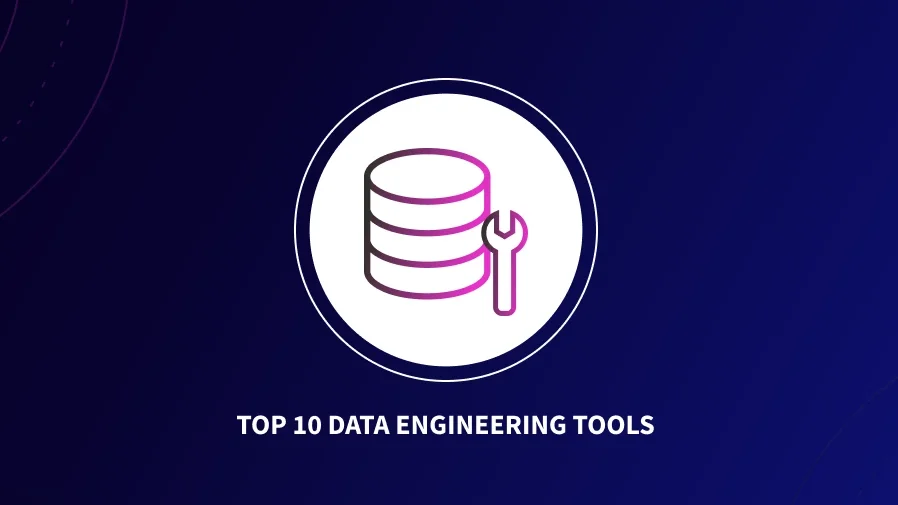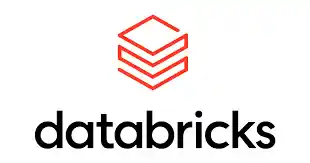Table of Contents
The right data engineering tools can significantly enhance your analytics capabilities in today’s data-driven world. Whether you’re processing large datasets, building data pipelines, or optimizing workflows, selecting the best tools is crucial. This article highlights ten powerful data engineering tools that can streamline data processing and boost your analytics performance.
From scalable cloud platforms to efficient data integration solutions, these data engineering tools offer a range of features to meet diverse needs. By leveraging these tools, businesses can gain deeper insights, improve decision-making, and stay ahead in the competitive landscape. Explore our top picks to find the perfect fit for data engineering projects.
10 Data Engineering Tools

Data engineering is a foundational discipline that involves designing, building, and maintaining the infrastructure and systems necessary for efficient data analysis, processing, and storage. In this context, data engineering tools are pivotal, enabling organizations to seamlessly manage vast amounts of data. Here are ten popular and powerful data engineering tools widely used in the industry:
1. Apache Spark

Apache Spark is a unified analytics engine renowned for its speed and versatility in big data processing. It offers built-in modules for streaming, SQL, machine learning, and graph processing, making it a comprehensive tool for diverse data engineering tasks. Spark’s in-memory computation capabilities significantly enhance performance, allowing for faster processing and real-time data analytics. Its easy handling of large-scale data makes it an essential tool for data engineers looking to boost their analytics capabilities.
2. Apache Hadoop

Apache Hadoop is an open-source framework that provides a scalable and distributed computing environment for processing large data sets. It uses a simple programming model designed to scale from single servers to thousands of machines, each offering local computation and storage. Hadoop’s ecosystem includes tools like HDFS (Hadoop Distributed File System) and MapReduce, which facilitate efficient data storage and processing. This tool is ideal for organizations that must manage and analyze vast amounts of data across distributed systems.
3. Apache Kafka

Apache Kafka is a distributed streaming platform that excels in building real-time data pipelines and streaming applications. Kafka is designed to handle large volumes of data with low latency, making it an excellent choice for applications requiring real-time analytics and monitoring. Its robust architecture ensures high throughput and fault tolerance, enabling data engineers to stream data efficiently from various sources to multiple destinations.
4. Apache Airflow

Apache Airflow is an open-source tool for orchestrating complex workflows and data pipelines. It allows data engineers to programmatically author, schedule, and monitor workflows, making it easier to manage and automate ETL processes. Airflow’s flexible DAG (Directed Acyclic Graph) structure enables clear visualization and tracking of data flow, helping to ensure that data pipelines run smoothly and efficiently.
5. Snowflake

Snowflake is a cloud data platform that offers data warehousing, data lakes, data sharing, and more. Known for its scalability and ease of use, Snowflake allows organizations to store and analyze data in a unified environment. Its unique architecture separates computing and storage, enabling efficient scaling of resources as needed. Snowflake also supports seamless data sharing across different organizations, making it a versatile tool for collaborative data engineering projects.
6. Databricks

Databricks is a data analytics platform that integrates with Apache Spark, providing a collaborative workspace for data engineers, data scientists, and business analysts. It offers a unified environment for data processing, analytics, and machine learning, making it an invaluable data engineering tool for comprehensive tasks. Databricks’ managed Spark service simplifies cluster management and enhances productivity by automating many of the complex tasks associated with big data processing.
7. Google BigQuery

Google BigQuery is a fully managed, serverless data warehouse designed for super-fast SQL queries using Google’s infrastructure. It allows data engineers to analyze large datasets quickly and efficiently without the need for provisioning or managing physical hardware. BigQuery’s ability to handle massive volumes of data and perform real-time analytics makes it a powerful tool for organizations looking to gain insights from their data.
8. AWS Glue

AWS Glue is a fully managed extract, transform, and load (ETL) service that simplifies data preparation and loading for analytics. It automates many of the tasks involved in data integration, such as discovering data sources, suggesting data schemas, and managing ETL jobs. AWS Glue integrates seamlessly with other AWS services, providing a comprehensive solution for building data lakes and preparing data for analytics.
9. Fivetran

Fivetran is a fully managed data pipeline tool that automates data integration, providing connectors for a wide range of data sources. It simplifies the process of extracting, loading, and transforming data, allowing data engineers to focus on analysis rather than data integration. Fivetran’s automated schema migration and transformation capabilities make it an efficient and reliable choice for managing data pipelines.
10. dbt (Data Build Tool)

dbt (Data Build Tool) is a command-line tool that enables analysts and engineers to transform data in their warehouses more effectively. It focuses on analytics engineering by enabling transformations directly in the database, using SQL. dbt’s model-driven approach allows for modular, reusable transformations, which can be version-controlled and documented. This tool is ideal for creating a robust and maintainable data transformation workflow.
Empower Analytics with Data Engineering Tools
Choosing the right data engineering tools is crucial for optimizing your analytics processes. The ten tools highlighted here offer diverse functionalities to meet various needs of data engineering tools, from real-time streaming to data warehousing.
By integrating these tools into your workflows, you can enhance data quality, streamline operations, and unlock valuable insights. Investing in these powerful tools will not only boost your analytics capabilities but also drive better decision-making and business outcomes.